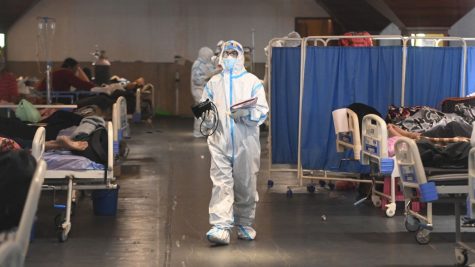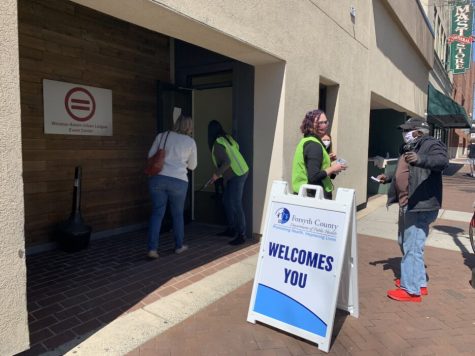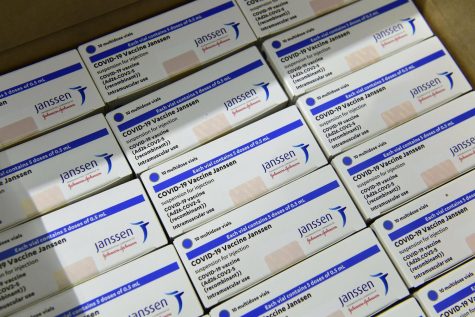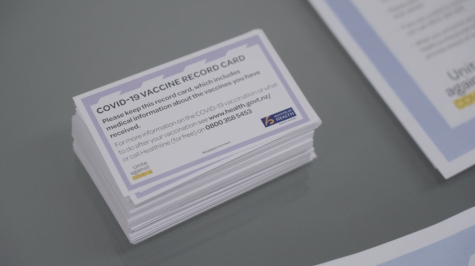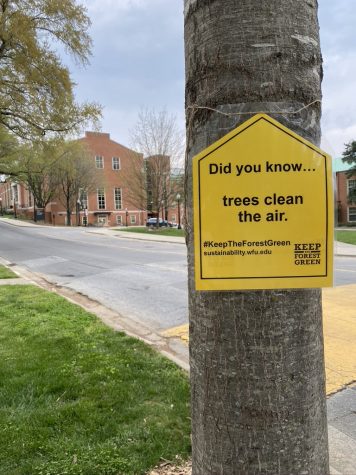The pandemic is taking a toll on mental health
October 8, 2020
While the coronavirus attacks one’s upper respiratory system, the fear and uncertainty surrounding the pandemic are just as violently attacking some people’s mental health.
This virus thrives when the infected person comes into contact with other people. This means defense against it is social. But isolation’s consequences could have lasting effects on people struggling with their own mental health.
The World Health Organization (WHO) estimates that a fourth of adults worldwide suffer from a mental health condition. And a study by Qualtrics surveying people on their mental health since the pandemic started found 42 % of people say their overall mental health has declined.
These changing statistics raise concerns on how this virus will affect people long-term. Americans in at least 42 states have stay-at-home orders that restrict them from leaving home besides running essential errands. So, now more than ever, people are cooped up at home with limited social activity.
Even when running essential errands, the U.S. Centers for Disease Control has recommended people stay socially distanced by six feet.
“The level of transmission spread and pathogenesis is more than any of us could have expected,” said Dr. Sarah McDonald, a virologist and associate professor of Biology at Wake Forest University.
Due to the novelty of this virus, nobody has natural immunity to it. Therefore, no one is immune to the threat coronavirus could have on mental health either.
“In a few weeks’ time, everyone’s lives were upended, and that’s bound to bring up a lot of feelings,” said Dr. Nikki Elston, an assistant teaching professor in the Department of Counseling at Wake Forest University.
Prescriptions for anti-anxiety medications increased 34 % between mid-February to mid-March, according to CNN Health.
With increased anxiety, alcohol sales have also sky-rocketed 55% compared to this time last year, according to CNN Business. People cope differently when feeling alone or worried, and one coping mechanism is alcohol.
Liquor stores are deemed essential businesses because people can die from the effects of alcohol withdrawal. And with more people using alcohol to cope, people who have recovered from alcoholism could relapse.
“I was talking to my friend who counsels individuals with alcohol and drug use disorders, and he said the majority of his clients have relapsed,” said Elston. “If people are feeling more isolated and worried, they may return to their addiction as a coping mechanism.”
Many counseling services have moved online to provide telemental health counseling. But Elston admits it is different. Many benefit from group sessions: the connectedness of sitting in a circle with people who share similar stories helps many individuals, but this is lost through online sessions.
“While we may not know this for some time, it’s possible this virus may push people who are thinking of suicide to act on their plans,” says Dr. Elston, “Especially if they are feeling isolated and helpless.”
However, she also says it could benefit people who find large crowds anxiety-inducing and find comfort in isolation.
Typically in times of despair, people come together to help those in need. And while this is not possible because of stay-at-home and social distancing orders, Dr. Steve Burton, a psychiatrist at the Louisville Veterans Affairs Hospital, encourages people to do acts of kindness. By helping others, one can boost their own happiness.
“Try to be optimistic, but don’t deny the risk,” says Burton. “It’s also very important to get outdoors and open up shades in the house. We need sunlight. It helps prevent depression. And, instead of focusing on what you cannot control, try to recognize things you can control.”














